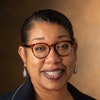As a university administrator and leader, I often think deeply about my responsibilities and commitments to and in the academy. My actions, disposition, and proclivities have never waivered since graduate school. For decades, I have never waited for graduation, conferral of a degree, tenure, or any other formality to speak up and out about injustice, to become unapologetic, or to become an activist in research, teaching, or service. These past few months, I have been thinking more about what it means to be an unapologetic leader/administrator and how I can and should continue to move in these “academic streets .” As an administrator/leader, specifically during these last few years, I think deeply about how anyone can serve in a leadership role without framing their role in higher education around activism, social justice, and critical consciousness.
I argue that academic processes and machinations in the academy are antiquated and are not framed for anything or anyone to “act” or serve in a revolutionary capacity. This includes how we lead and how we serve. Because leading for change is so critical, I often revisit how leaders serve and lend support to the academic unit and how we shape the experiences and lives of newly minted assistant professors, students, institutions of higher education, and young people in their communities.
I am particularly concerned about young professionals who reside in academic spaces since we all know that these are the very people who will serve as the next generation of leaders and support systems for the human conditions. Truthfully, it sickens me to hear some of the stories about how new professionals, committed to the good fortune and success of the culture, have to move so "carefully" in these academic streets. In this piece, I vi Dr. Robin Hughes
Dr. Robin Hughes
For years, we have all been privy to discussions, tweets, articles, op-eds, etc., that advise pre-tenure and tenured professors to "watch" what they say throughout their tenure clock. In general, the message is that you betta' be careful until you have earned tenure. The advice suggests that tenure track faculty actually "codeswitch" to navigate the tenure process successfully. . The implication is that this academic codeswitching sends a pledge of allegiance, a promise of collegiality, and an air of submission to those who might be voting on a case. The pre-tenured are expected to invest in the form of “dispositional passing” where faculty members move in and out of academic spaces by engaging in codeswitching.
Tenured faculty advise new professionals to edit their communication style. This sends a message to play well in the sandbox, no matter how much dirt is kicked. Codeswitching also evokes a strange change in voice inflections—to fit in or "pass" (used to be referred to as talking "proper" back in the day—which is also problematic). Ultimately, the subtext is to NOT place any pressure on or change the level of comfortability on anyone in the academic setting who might hold some perceived power. Do not offend or disrupt long-established organizations or the academic "normal and norms," which are frequently oppressive. There are many who walk this supposedly thin line and ‘pass and switch” in order to fit in until awarded tenure. They often claim after tenure is granted, I will speak up. In fact, they do suddenly become semi-fearless after 6 to 7 years— or at least until they quiet down before going up for full.




















